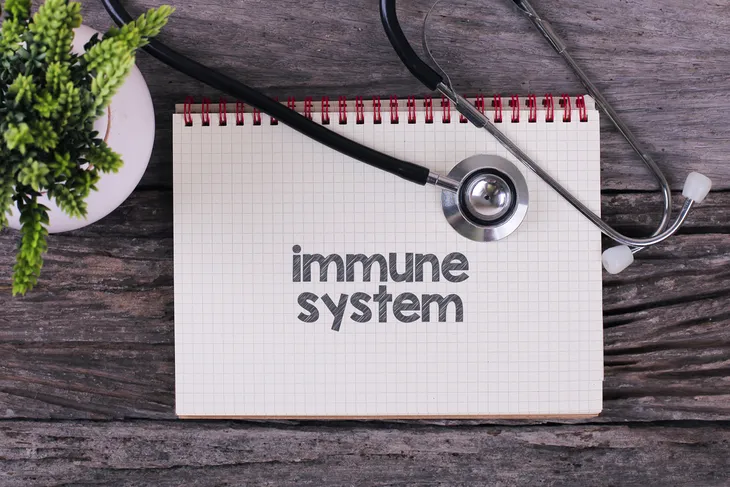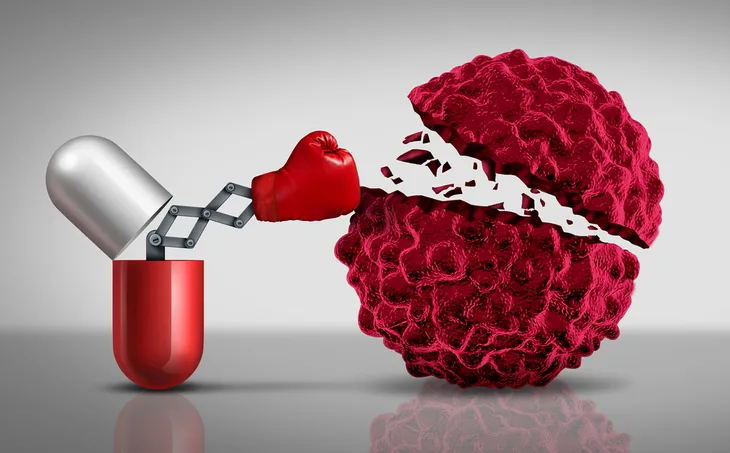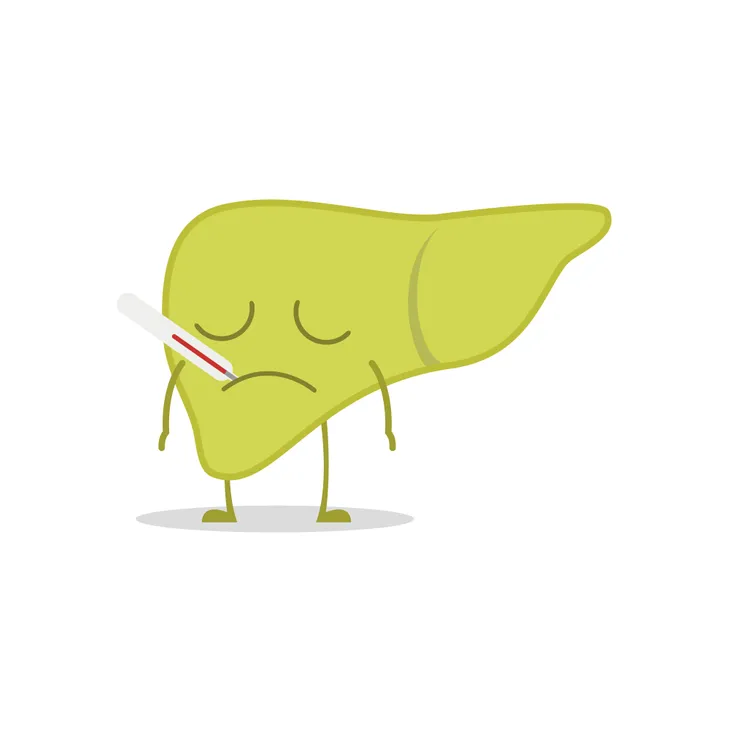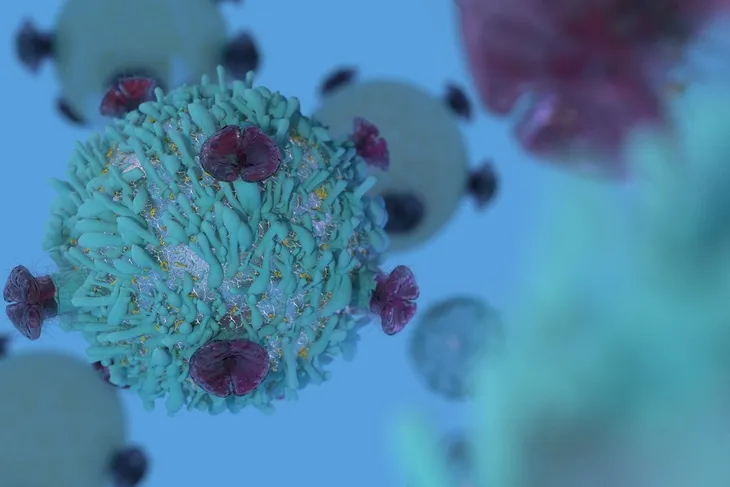Cancer is one of those words we don’t like to use or hear because it carries a lot of weight. It’s scary. For most of us, it’s affected our lives in one way or another, either personally, through a family member, a friend, or just an acquaintance. We all understand the gravity of this condition. While there still is no cure for cancer, there are many treatments available, and for some cancers, if found early, the survival rate is high. One of the available, but lesser-known, treatments is immunotherapy. This form of treatment uses the body’s own immune system to fight off cancer and can even be used in tandem with other treatments to make it more effective.
Even though immunotherapy is used to treat cancer and is praised for its effects, there are also some very real and serious risks. The only way to determine whether immunotherapy is right for you is to consult with a doctor. If it’s something you’ve been considering or want to learn more about, here’s the perfect place to start! Let’s take a moment to look at the benefits and risks of immunotherapy…
What is Immunotherapy?
Before we begin discussing whether or not immunotherapy is good or bad and the pros and cons of this particular treatment, we must first talk about what it is. Our immune system is designed to fight off disease and infection to keep our body healthy. It’s made up of white blood cells, as well as organs and tissues of the lymph system, such as bone marrow, says WebMD.
Immunotherapy is a treatment that is designed to encourage our own body to fight against and get rid of cancer. It helps the immune system work harder and makes it easier to fight off and kill cancer cells. There are many immunotherapy drugs that are approved and being used as a viable treatment against cancer, but there are many others that are still in the clinical trial phase, being tested on whether or not they are safe and effective. The Cleveland Clinic points out that it was first used for treating kidney cancer and melanoma, but it’s now also being used as a treatment for various types of cancer.
So before starting immunotherapy, let’s go over the risks and benefits because there are plenty for each.
Benefits
It Can Be The Only Option
In some cases, immunotherapy is the only option. We all think of chemotherapy and radiation as the only treatments for cancer, but in many cases, they don’t work, and in others, they are not an option whether alone or in combination. WebMD notes that certain cancers do not respond well to chemotherapy and radiation, with skin cancer being one of them. In this case, immunotherapy is the best and only option.
It Can Help Other Cancer Treatments
According to WebMD, immunotherapy makes a good partner in fighting cancer as it can help other cancer treatments work better. “Other therapies you have, like chemotherapy, may work better if you also have immunotherapy,” states the source.
Fewer Side Effects Than Other Treatments
Like many medications or treatments, such as chemotherapy, there are plenty of side effects that come along with it. In these cases, a decision on whether or not to take the treatment is simply a matter of weighing the benefits against the risks. When it comes to side effects, immunotherapy wins. Since the treatment only targets the immune system and not the rest of the body, it causes fewer side effects than other treatments, says WebMD.
Cancer is Less Likely to Return
The last and arguably the biggest benefit of immunotherapy is that it has a higher success rate for whether or not the cancer will return. “When you have immunotherapy, your immune system learns to go after cancer cells if they ever come back. This is called immunotherapy, and it could help you stay cancer-free for a longer time,” writes WebMD.
Risks
There Can be Bad Side Effects
Like many forms of treatment, immunotherapy can cause some nasty side effects. It’s up to you whether or not the benefits outweigh the risks. According to WebMD, some types of immunotherapy will provide a jolt to the immune system to enhance it, but at the same time cause flu-like symptoms, such as fever, chills, and fatigue. Other cases have reported symptoms such as swelling, weight gain from extra fluids, heart palpitations, a stuffy head, and diarrhea, says WebMD. The side effects experienced by each patient will vary.
Other side effects reported by Regional Cancer Care Associates are rash and blisters, headaches, shortness of breath, difficulty sleeping, and weakness.
Serious Side Effects
Going off the previous slide on side effects, there are also some even more serious side effects that could be life-threatening. Regional Cancer Care Associates notes that immunotherapy contains monoclonal antibodies, which “have been known to cause high blood pressure, bleeding, blood clots, kidney damage, severe rashes and other serious risks.”
The source also notes that chimeric antigen receptor (CAR) T-cell therapy can cause cytokine release syndrome (CRS), which can lead to a high fever and low blood pressure. “Additional side effects may include seizures, confusion, serious infections, low blood cell counts and severe headaches,” according to the source.
You Could Have a Bad Reaction
Similar to the bad side effects, there’s always a chance when you’re putting a foreign substance into your body that you’ll end up having a bad reaction to it. When it comes to immunotherapy, it’s not uncommon for the patient to have reactions, such as itchiness, pain, swelling, redness, or even just soreness in the area of the body where the medication was administered.
Harm Organs and Internal Systems
Other serious side effects of immunotherapy can cause harm to internal body systems and organs. “Some of these drugs can cause your immune system to attack organs like your heart, liver, lungs, kidneys, or intestines,” says WebMD.
Isn’t a Quick Fix
Wouldn’t that be nice, a quick fix to something like cancer? Unfortunately, while we’ve all been waiting for the day it’s announced that a miracle cure or quick fix to cancer has been found, immunotherapy is not it. In fact, in some cases, this form of treatment actually takes longer to work than other treatments. WebMD points out that there is no guarantee it will work, and it definitely won’t cause the cancer to go away quickly.
Doesn’t Work for Everyone
As we’ve already pointed out, there is no guarantee that immunotherapy will work. It’s not a “one size fits all” method. The Cleveland Clinic points out that while it’s considered to be a major breakthrough in cancer research, it’s important to note that every cancer reacts differently to different types of treatment. This also goes for people. Different people with the same type of cancer will respond differently to immunotherapy.
In fact, it hasn’t worked for a lot of people. Less than half of the people who try it are successful with it, says WebMD. “Many people only have a partial response. This means your tumor could stop growing or get smaller, but it doesn’t go away,” says the source. It’s still unclear why immunotherapy works for some people but not for others, and for this reason, it’s not an option for every patient.
Your Body Can Adapt
The human body is a beautiful thing. It amazes us at what it can do, how it can heal, and in some cases, how it can adapt. While more often than not these impressive qualities are good, it also means that with a therapy like immunotherapy, the body could adapt and get used to the treatment. Over time, immunotherapy might stop being effective on cancer cells. “This means that even if it works at first, your tumor could start to grow again,” explains WebMD.















